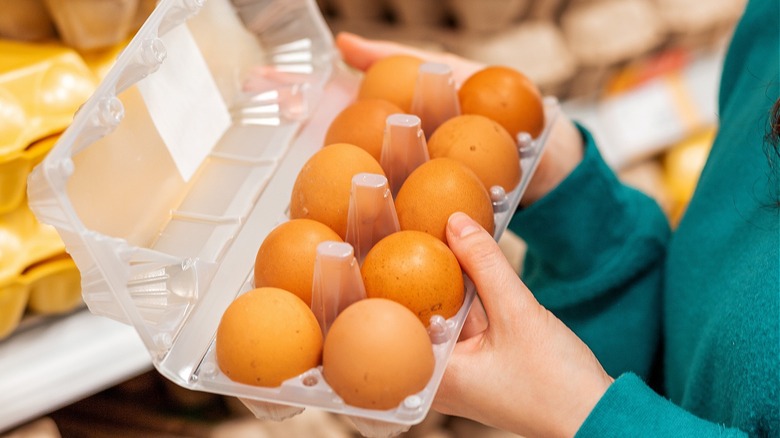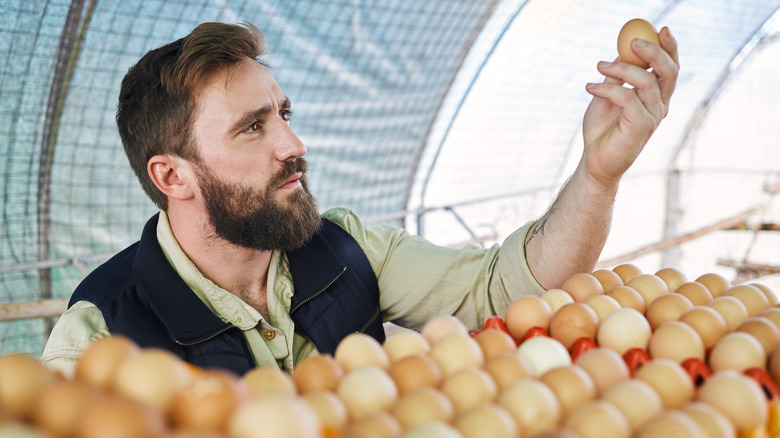There's Actually A Scorecard That Ranks Organic Grocery Store Eggs
Buying eggs isn't all it's cracked up to be. First, egg prices may be getting cheaper now, but consumers have been riding the inflation roller coaster for a while. Then, there's the unbelievably wide assortment of egg types: organic, cage-free and free-range, white, and brown — all sold at a wide array of prices with hard-to-verify claims about how they've been produced. To resolve the uncertainty surrounding organic grocery store eggs, The Cornucopia Institute had the inspired idea of creating an actual scorecard that rates your egg carton — but it isn't about grade A or B. Rather, it is an assessment of farming practices.
Cornucopia rates eggs on a set of criteria and then gives producers a 1-5 rating based on what the non-profit organization calls an "organic egg scorecard." The Cornucopia Institute's criteria are no joke and show the commitment of those scored to a holistic vision of farming. Ratings include the following factors (which are explained and documented in full on its website): Ownership, Structure, Commitment to Organic Label, Add-on Labels, Flock size, Hen Housing Type, Indoor Spacing, Outdoor Spacing, Quality of Outdoor Access, Outdoor Access Timing, Enrichments, Alterations, Chicks and Pullets, Death, Culls and Spent Hens, Environmental Impacts, Feed Sourcing, Animal Welfare, and Transparency. Plus, it lists "extra credit" categories and two non-scoring sections: Soy/Gluten-free feed and Organic Certifiers.
The organic egg scorecard is about quality and quality of life
A number of these factors consider the treatment of laying hens, such as what kind of environment they are kept in and how healthy it is for them regarding cleanliness, space, and regular outdoor access. Other categories address how the farm acquires chicks and de-acquisitions those that are past their prime. They also consider feeding sources and how the farm's structure and financing support (or thwart) the environment.
Evaluating egg suppliers on this broad basis is an intensive labor of love. It took two years of research to produce the most recent iteration, which lists 150 brands. True to form, the organization gives each farm an egg instead of a star. The maximum, five eggs, denotes the best and most ethically-produced choices; The Cornucopia Institute encourages consumers to patronize egg producers that have earned 4-egg ratings and above.
Per the scorecard, 33 farms have earned a 5-egg score, and 27 other farms garnered 4-egg assessments for 60 total suggested suppliers out of the 150 tested. The evaluations are limited to United States-produced eggs making organic claims, so eggs sourced outside of the U.S. aren't featured on its webpage. Cornucopia offers scorecards on other farmed products such as dairy, beef, and cereal. It's great to know that someone out there is going the extra mile to help us understand the labels on our products and whether the reality matches up.

